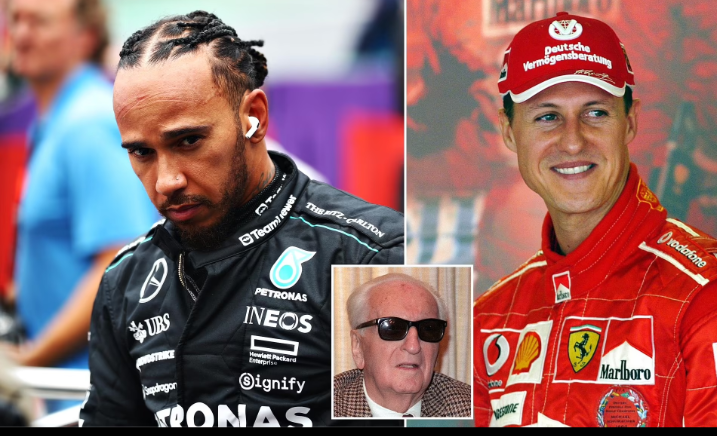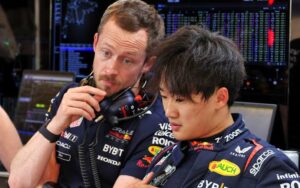SHUCKING New 💔💔💔👇👇

Ferrari President “Regrets” Lewis Hamilton Decision following…read more
Speculation about Lewis Hamilton’s potential move to Ferrari has sparked discussions about the possible conclusion of his illustrious Formula 1 career at the highest level. A shift to Ferrari could offer Hamilton a fresh challenge and a new environment that might reinvigorate his passion for racing. However, such a move is not without risks. While Ferrari has historically been one of the most iconic teams in F1, the outcome of Hamilton’s tenure there is uncertain. If he fails to recapture the form that made him one of the sport’s all-time greats, it could mark the end of an era for both him and Formula 1 itself, with a clear transition towards a new generation of drivers who will define the future of the sport.
The notion that Hamilton’s days of dominance might be behind him is further emphasized by comments made by Mercedes team principal, Toto Wolff. His reflections on Hamilton’s potential decline suggest that Mercedes is already contemplating a future without the British driver. Hamilton has been the cornerstone of Mercedes’ success over the last decade, and his contributions to the team’s dominance are immeasurable. However, as the team’s focus shifts towards long-term sustainability, Wolff’s statements hint at the fact that Mercedes is preparing to move beyond Hamilton. This includes nurturing young, promising talents who could take the reins when the time comes.
Mercedes’ preparations for life after Hamilton have become apparent in recent seasons. The team has begun investing in and developing new drivers, ensuring that they are ready to step into the spotlight when Hamilton’s time at the top comes to a close. Formula 1, being a sport that evolves at a rapid pace, requires teams to constantly look ahead. The emergence of a new wave of talent is always just around the corner, and top teams like Mercedes understand the importance of securing the future of their operations. As much as Hamilton’s legacy with the team has been integral to its success, it’s clear that the focus has already shifted to the next phase of the team’s development.
If Hamilton does indeed move to Ferrari, it would likely be one of the most talked-about changes in recent F1 history. But whether this switch can rekindle his championship-winning form remains uncertain. Hamilton has struggled in recent seasons, with Mercedes not delivering the performance levels that would allow him to challenge for the top spots consistently. His difficulties in adapting to new regulations and the changing nature of the sport have been evident. Despite his vast experience and immense talent, the current challenges in F1, particularly with the dominance of other teams like Red Bull, have made it increasingly difficult for Hamilton to compete at the front.
As Hamilton continues to face these challenges, the sport itself is in the midst of a transition. The dominance of veteran drivers like Hamilton, Sebastian Vettel, and Fernando Alonso is slowly giving way to a new generation of stars such as Max Verstappen, Charles Leclerc, and Lando Norris. These younger drivers are already establishing themselves as the future of F1, with many of them poised to lead the sport in the years to come. This shift is not just a natural evolution, but an essential part of keeping the sport fresh and exciting for fans worldwide.
Wolff’s comments about Hamilton’s possible decline also signal a broader acknowledgment within the F1 community that change is inevitable. While Hamilton’s past achievements have cemented his place as one of the greatest drivers in the history of the sport, there’s a growing recognition that F1 is on the cusp of a new era. This transition will not only affect Mercedes and Hamilton but the entire F1 landscape. Teams, drivers, and fans will all have to adjust to the new realities of the sport, as new faces rise to prominence and challenge the established order.
In conclusion, the prospect of Hamilton moving to Ferrari could be a pivotal moment in both his career and in the broader context of Formula 1. Whether this move helps him reclaim his competitive edge or signals the end of his dominance remains to be seen. However, Wolff’s comments reflect a growing realization that Mercedes, along with the entire F1 community, is already planning for the post-Hamilton era. The next few years are set to be a period of significant change, as Formula 1 ushers in a new generation of talent ready to carry the sport forward. Hamilton’s legacy will undoubtedly be shaped by both his past successes and the challenges he faces in the coming years, but one thing is certain: the sport is preparing for a new chapter.








